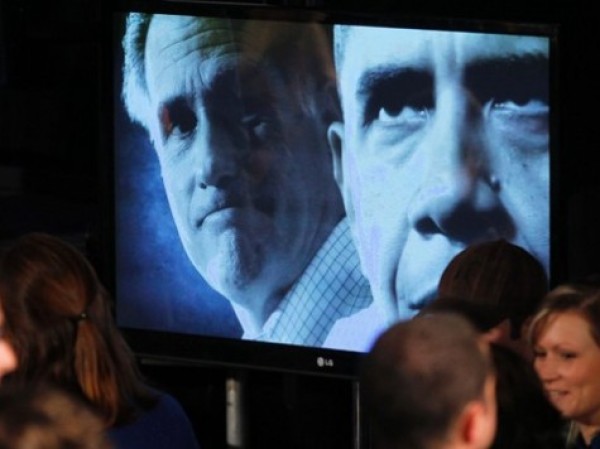 Europe has spoken Mitt Romney is not an attractive option to lead the U.S. for the next four years. The polls published by the reliable German Marshall Fund and the British poll YouGov offer interesting results on the perceptions of Europeans on the two U.S. presidential candidates. According to the Financial Times, the poll from the YouGov-Cambridge Forum showed that only “one in 20 people in Britain, France, and Germany have a positive view of the Republican presidential nominee. 47 per cent of UK respondents claimed that the victory of Romney would make them feel less favorable towards the US.”
Europe has spoken Mitt Romney is not an attractive option to lead the U.S. for the next four years. The polls published by the reliable German Marshall Fund and the British poll YouGov offer interesting results on the perceptions of Europeans on the two U.S. presidential candidates. According to the Financial Times, the poll from the YouGov-Cambridge Forum showed that only “one in 20 people in Britain, France, and Germany have a positive view of the Republican presidential nominee. 47 per cent of UK respondents claimed that the victory of Romney would make them feel less favorable towards the US.”
In the recently published “2012 Transatlantic Trends” by the German Marshall Fund, an entire section of the report is dedicated on the perceptions of the Obama’s first term and the 2012 presidential elections. The GMF interviewed 15,000 people in 15 countries. Interestingly, Europeans’ perceptions of Obama’s first term have been declining as proven by chart below. His approval ratings in Europe were over 83% when he took office and dropped by almost 12 points in four years. The gap between expectations and reality has been filled in, but his approval ratings remain considerably higher than the one back home floating around 50% according to Gallup and RealClearPolitics.
The following charts (Approval of Obama’s handling of International Politics & Approval of Obama by policy) also illustrate the declining approval of Obama in handling international politics in Europe and U.S. Interestingly, France has the highest approval with a little over 80%, much higher than the historical friend, the UK, with only 67%.
Europeans feel that Obama’s approach in fighting international terrorism has been his stronger policy – probably linked to the killing of Osama bin Laden – and his weakest being the negotiations with Iran on its nuclear program. It would have been interesting to have a chart on the Europeans’ perceptions of the U.S. handling of the Libyan crisis.
However, when it comes to the presidential candidates, Europeans’ perceptions of Mitt Romney are not surprising, 38% do not know and 39% are unfavorable. Obama receives a considerable approval from the Europeans with 82%.
According to the GMF, “an overwhelming majority of Europeans (75%) said they would vote for Barack Obama if they were allowed to vote […]. Only 8% said they would vote for Mitt Romney if they could.” Not surprisingly, 16% of the votes would come from Poland, which has emerged as a strong US partner in dealing with Russia, and 2% from France (Chart 21).
The 2008 U.S. presidential elections were seen as one of the first global elections. President Obama, at the time only a U.S. Senator, was very well received in Europe as part of his international tour in Iraq, Afghanistan in order to prove his adversary, John McCain, that foreign policy was not one of his weaknesses. Many would remember his 2008 speech in Berlin in front of a crowd  estimated of 200.000 people. Four years later, Mitt Romney was another presidential candidate going to Europe. Unfortunately, his trip in Europe and the Middle East was hijacked by his misstep in London upsetting one of the America’s closest allies.
estimated of 200.000 people. Four years later, Mitt Romney was another presidential candidate going to Europe. Unfortunately, his trip in Europe and the Middle East was hijacked by his misstep in London upsetting one of the America’s closest allies.
But, it is not surprising to see a warmer perception of Obama in Europe. Several reasons can be identified. First, Mitt Romney is very little known, and may very much be unknown to a majority of Europeans. Second, Obama has been perceived in Europe as a new type of leader. His election in 2008 was perceived as a change in American politics and a real rupture with his predecessor, George W. Bush. Third, Obama’s approach to foreign policy has on paper favored cooperation, even though in practice it has not always been the case. Fourth, the ghost of former President George W. Bush is also floating over the Romney campaign. The trauma of the 2003 war in Iraq will take some time to be erased from European collective memory. And last but not least, the Europeans’ overall relationship with money and personal wealth are considerably different than their American counterpart. The fact that Obama has been pushing for a stronger welfare state in the U.S. – the implementation of universal healthcare and more social safety nets – has been perceived very positively in Europe. Mitt Romney’s argument on the dismantlement of the welfare state does not resonate well in continental Europe.
These two polls offer us an interesting understanding on the relationship between the two sides of the pond: Narratives tend to be stronger than actions. Perceptions do matter and may very well play an important role in the future of transatlantic relations.